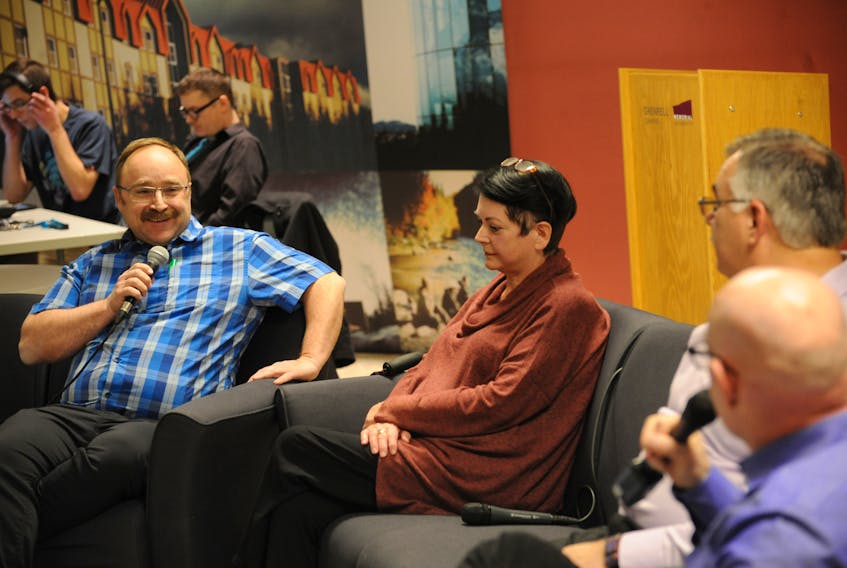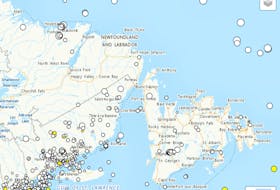Frank Skeard said he likes the term “status blind” when it comes to Indigenous people trying to find a meaningful connection with their culture.
Skeard was among three panelists who took part in a live broadcast Thursday evening of “Mi’kmaq Matters,” a podcast dedicated to the Mi’kmaq community.
Hosted by Glenn Wheeler of York Harbour, the show celebrated its one-year anniversary by broadcasting live from Grenfell Campus, Memorial University in Corner Brook.
Skeard is the Qalipu Mi’kmaq First Nation Band’s ward councillor for Glenwood. He was joined by former Corner Brook mayor Charles Pender, who is also of Mi’kmaq descent, and Suzanne Barry, a Mi’kmaq woman who is former president of the Newfoundland Aboriginal Women’s Network.
Their hour-long discussion focused on how the Mi’kmaq community has evolved in recent years, particularly in light of the establishment of Qalipu and the frustration of tens of thousand of people who have been denied membership in the band.
At one point, Barry used the term “status blind” to refer to membership in the Newfoundland Aboriginal Women’s Network, meaning that a person did not have to be formally recognized as Indigenous to be a member.
Skeard said bridging the gap between those who have been enrolled in Qalipu and those who have been denied, yet still want to celebrate their Mi’kmaq heritage, is an expectation the band will need to manage as it grows.
“That’s a discussion that is really going to be emerging going forward,” he said.
He noted that, other than Qalipu council meetings or the band’s annual general assembly, no one has been turned away from attending Qalipu-sponsored events.
“There is no ask if you are a status member or not,” said Skeard. “I would foresee that, to be fair, the question may come to be, ‘What can Qalipu afford?’ We need to recognize that may be an issue going forward.”
Barry said there are many Mi’kmaq people who are not Qalipu members and who, due to circumstances such as addiction or abusive situations, cannot have their voices heard. She said these are some of the people who need the most help and there should be a better mechanism in place for Qalipu to help address that issue.
Skeard said Qalipu is limited to using its funding and resources to develop programs primarily for those who are card-carrying members, but the band is always trying to find out better ways to reach the Mi’kmaq community.
“I would think Qalipu would want to be at that table as a vigorous partner on any potential solution,” said Skeard.









